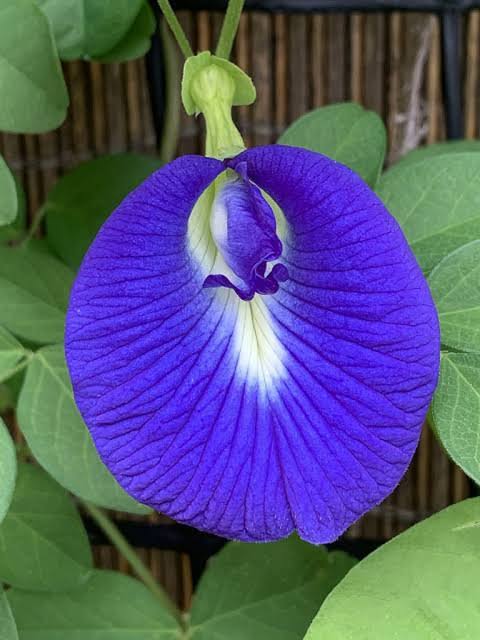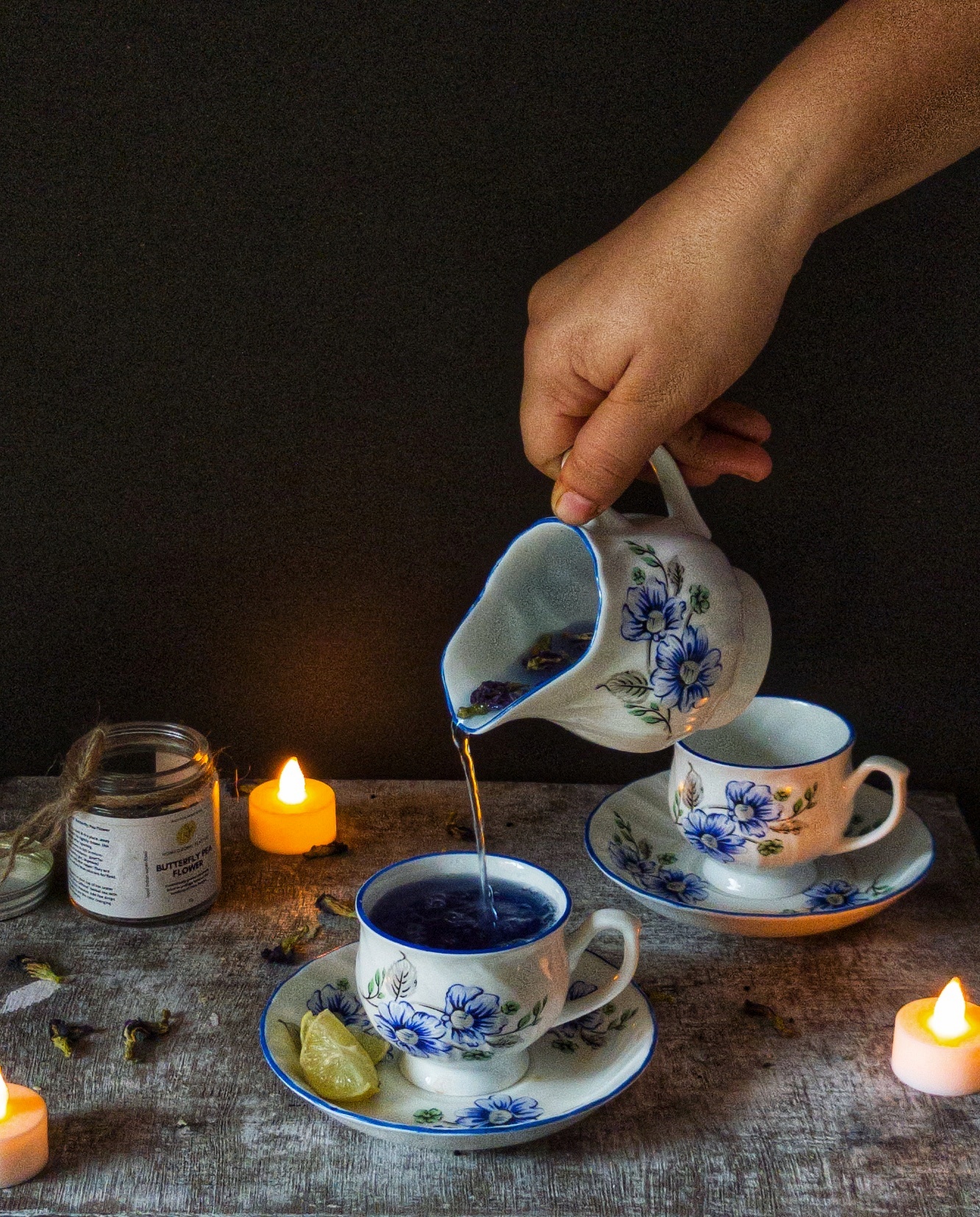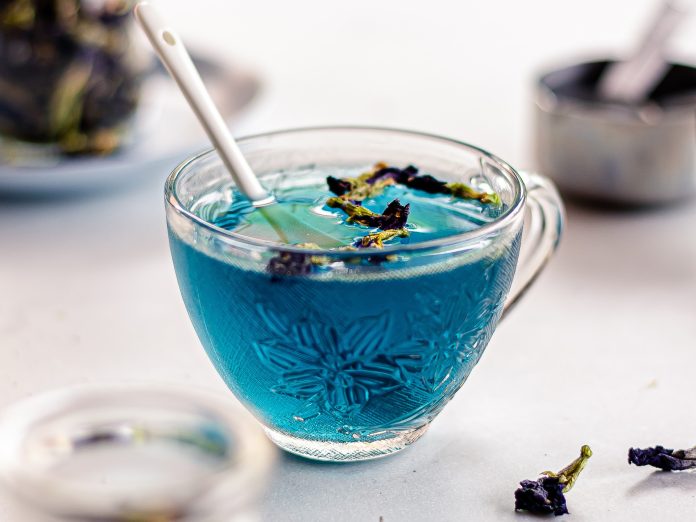In an ever-evolving world of beverages, the demand for healthier options has never been more prominent.
And, with the unceasing search for healthier beverage alternatives, the allure of vibrant teas with accompanying health benefits is on the rise.
According to the International Journal of Cosmetic Science, blue tea, derived from the butterfly pea plant, has emerged as a favourite among health-conscious individuals partly due to its eye-catching blue hue, in addition to its health benefits as attested to by several scientific studies.

An exotic elixir
Butterfly pea tea or blue tea is reputed to be a soothing herbal tea originating in Asia and scientifically referred to as Clitoria ternatea [Asian pigeonwings].
As health professionals and nutritionists continue to encourage people to drink less coffee, herbal teas are stepping up as an alternative that provides flavour without the caffeine, making them a popular health choice among health-conscious consumers.
Typically consumed without milk or sugar, scientists say the blue tea aids blood sugar regulation and overall well-being, particularly for those managing diabetes, as cited in the Journal of Cosmetic Dermatology.
While traditional herbal teas such as jasmine, chamomile and hibiscus have their own flow, butterfly pea tea appears to stand out through its unique health recompenses.
 Brewing the blue tea
Brewing the blue tea
According to online platform, Healthline, users are advised to place the butterfly pea flowers or tea bag into a cup and add boiling water. Let sit for five minutes or until the water turns into a bright blue colour. Sweeten with sugar, maple syrup or honey to taste if desired. You can also add lime or lemon juice The tea can be served hot or on ice.
According to researchers, some health benefits of butterfly pea tea include:
Weight loss
Blue tea contains catechins. According to the Journal of Medicinal Food, in general, catechins, which are natural polyphenolic phytochemicals that exist in food and medicinal plants such as tea, legume and rubiaceae, have antioxidant properties that aid in fat burning and weight loss, while they also promote digestion by boosting metabolism and aid in reducing water retention, thus assisting in maintaining healthy blood pressure.
Mood-enhancing brew
Just like chamomile tea, butterfly pea tea is recognized for its mood-boosting effects contributing to anxiety and stress reduction, as confirmed by a study published in the Journal of Ethnopharmacology.
Diabetes prevention
A stand-out benefit of the blue tea is its potential in preventing diabetes. Numerous studies also show that the tea’s high oxidant content significantly lowers blood sugar and insulin levels. Indeed, the Journal of Clinical Medicine and Antioxidants says the tea also helps in managing fatty liver problems, control cholesterol levels and prevent cell damage.
Cancer prevention
International pharmacological journal, Phytotherapy Research, says blue tea’s blossoms are rich in anthocyanins, antioxidants known to reduce inflammation and inhibit the formation of cancer cells. The tea plant contains many antioxidants, including kaempferol, which studies say exhibit potential anti-cancer effects. Another antioxidant, delphinidin-3,5-glucoside is said to stimulate the immune system and may also combat colorectal cancer.
Anti-aging wonder
Celebrating its anti-aging properties which are attributed to its high antioxidant content and anti-glycation actions which are believed to slow down skin aging, keeping the skin looking youthful and healthy. Its flavonoids also support collagen production as the Journal of Cosmetic Dermatology notes that it helps to maintain radiant skin and suppleness.
Promoting healthy hair
Butterfly pea tea also contributes to healthy hair with the anthocyanin content in the plant that enhances scalp blood flow and strengthens hair follicles, promoting robust hair growth while preventing split ends and brittle hair as affirmed by the International Journal of Cosmetic Science.

Caution
An online article on the benefits of butterfly pea tea that was medically reviewed by the duo of Jillian Kubala, a registered dietician; and nutritionist Ariane Lang, states that while research on blue tea’s benefits is promising, most of it focuses on extracts and antioxidants rather than brewed tea.
“In addition, there is an evident lack of human studies, as most of the research is related to findings from test-tube and animal studies. Thus, further human research is needed to better understand the beneficial effects of drinking a cup of this tea,” the two experts say.
Consequently, individuals with underlying medical conditions are advised to seek consultations with healthcare professionals to ensure blue tea’s compatibility with their specific health or dietary needs before consuming it.


